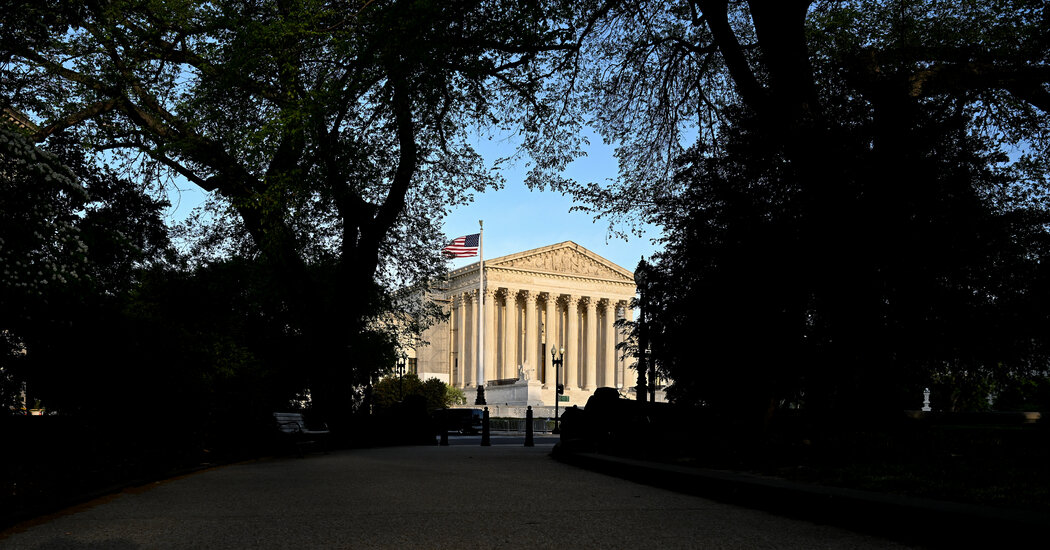The justices returned both cases, which concerned state laws that supporters said were aimed at “Silicon Valley censorship,” to lower courts. Critics had said the laws violated the sites’ First Amendment rights.
The Supreme Court on Monday avoided a definitive resolution of challenges to laws in Florida and Texas that curb the power of social media companies to moderate content, leaving in limbo an effort by Republicans who have promoted such legislation to remedy what they say is a bias against conservatives.
Instead, the justices unanimously agreed to return the cases to lower courts for analysis. In the majority opinion, Justice Elena Kagan wrote that neither lower appeals court had properly analyzed the First Amendment challenges to the Florida and Texas laws.
The laws were prompted in part by the decisions of some platforms to bar President Donald J. Trump after the Jan. 6, 2021, attack on the Capitol.
Supporters of the laws said they were an attempt to combat what they called Silicon Valley censorship. The laws, they added, fostered free speech, giving the public access to all points of view.
Opponents said the laws trampled on the platforms’ own First Amendment rights and would turn them into cesspools of filth, hate and lies.
The two laws differ in their details. Florida’s prevents the platforms from permanently barring candidates for political office in the state, while Texas’ prohibits the platforms from removing any content based on a user’s viewpoint.
